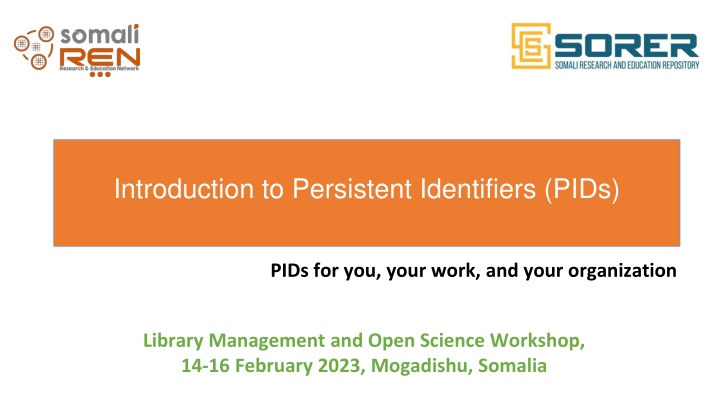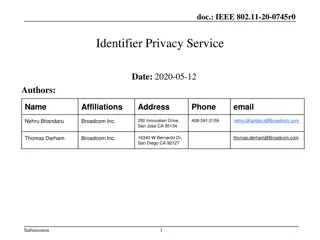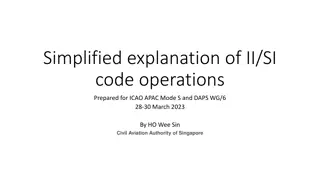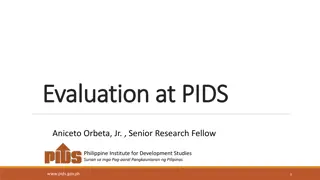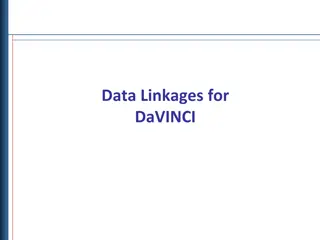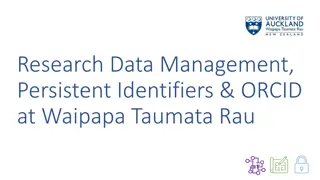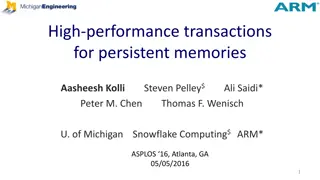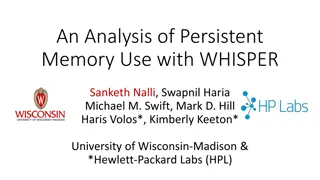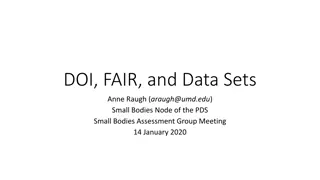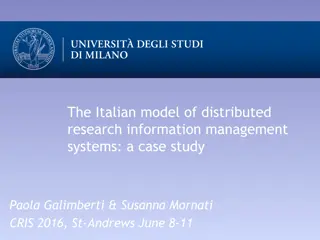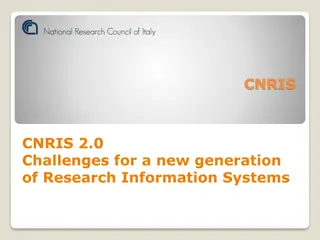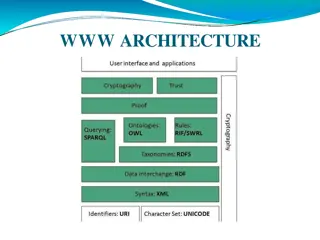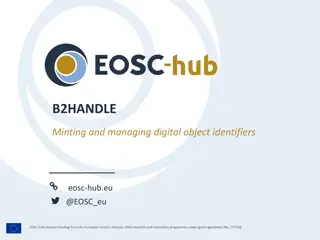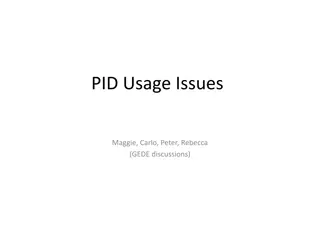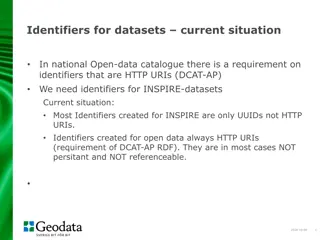Persistent Identifiers (PIDs) in Research and Data Management
Persistent Identifiers (PIDs) play a crucial role in establishing long-lasting digital references for objects, contributors, and organizations in the realm of research and data management. This introduction delves into the significance of PIDs, focusing on their role in identifying and connecting digital objects, contributors, and organizations seamlessly over time.
Download Presentation

Please find below an Image/Link to download the presentation.
The content on the website is provided AS IS for your information and personal use only. It may not be sold, licensed, or shared on other websites without obtaining consent from the author.If you encounter any issues during the download, it is possible that the publisher has removed the file from their server.
You are allowed to download the files provided on this website for personal or commercial use, subject to the condition that they are used lawfully. All files are the property of their respective owners.
The content on the website is provided AS IS for your information and personal use only. It may not be sold, licensed, or shared on other websites without obtaining consent from the author.
E N D
Presentation Transcript
Introduction to Persistent Identifiers (PIDs) PIDs for you, your work, and your organization Library Management and Open Science Workshop, 14-16 February 2023, Mogadishu, Somalia
Outline Introduction to Persistent Identifiers (PIDs) ORCID - PID for a Person PIDs for your Publications, Papers, etc.
Introduction General Definition: A Persistent Identifier is a long-lasting digital reference to an object, contributor, or organization, a code which remains constant as a means of identifying a digital object regardless of changes to its location on the internet. An identifier is an association between a string (a sequence of characters) and an information resource. Web URLs are an example of a common identifier. The term "persistent" refers to the need for an identifier to provide continued access to and provenance for the object it refers to for years to come.
Introduction The long-term persistence of identifiers for objects, contributors, and organizations is vital to robust data management strategies. Publishers, funders, and other organizations have implemented PIDs in their established research workflows to enable the creation of trusted digital connections between objects, contributors, and organizations. PID is a new name for a concept that has been a part of publishing for decades. In the past, publishers used identifiers such as ISBNs and ISSNs to distinguish unique textual objects. However, the proliferation of digitally available research and technical publications has created a need for machine-readable, interoperable PIDs. Machine-readable PIDs such as DOIs and ORCID iDs are valuable assets in enabling information sharing across systems.
Contributor Identifiers Contributor identifiers encompass researchers, authors, scientists, etc. Contributor identifiers establish a profile for a contributor to a work that disambiguates that contributor from others. Unique identifiers enable contributors with the same or similar names to track citations of their research. Contributor Identifiers include: o International Standard Name Identifier (ISNI) o Open Researcher and Contributor Identifier (ORCID iD) o ResearcherID o Scopus Author ID
Object Identifiers The term object refers to a meaningful piece of data and is intentionally broad. Objects include books, articles, white papers, chapters, datasets, tables, figures, videos, etc. A single resource, such as a book, may have multiple object identifiers associated with it, such as an identifier for the entire book, identifiers for each chapter, and identifiers for individual figures within chapters. The following are common identifier systems for digital objects: o Archival Resources Key (ARK) o Digital Object Identifier (DOI) o Handle (HNDL) o Persistent Uniform Resource Locator (PURL)
Organization Identifiers The Organization identifiers cover research institutions, funders, corporations, government agencies, etc. Organizational identifiers are still in the development stage, whereas object and creator identifiers are more solidly established and adopted. The goal of organization identifiers is to enable clear, long-term linking between the organizations supporting creators and the creation of objects. The following are common identifier systems for organizations: o Funder ID o Global Research Identifier Database (GRID) ID o Research Organization Registry (ROR) ID
ORCID PID for you ORCID (Open Researcher and Contributor Identifier): is an international, interdisciplinary, open, non- proprietary, and not-for-profit organization created by the research community for the benefit of all stakeholders, including you and the organizations that support the research ecosystem. We provide a persistent digital identifier (an ORCID iD) that distinguishes you from other researchers and a record that supports automatic links among all your professional activities. Your ORCID iD and connections are stored in the ORCID Registry in an account you own and manage.
DOI PID for Publications A DOI (Digital Object Identifier) is a unique and never-changing string assigned to online (journal) articles, books, and other works. DOIs make it easier to retrieve works, which is why citation styles, like APA and MLA Style, recommend including them in citations. You may find DOIs formatted in various ways: o https://doi.org/10.20374/sorer/298 o https://doi.org/10.1111/hex.12487 o https://dx.doi.org/10.1080/02626667. 2018.1560449
DOI PID for Publications Statistics SORER is integrated with ORCID DOI is assigned License for this upload
